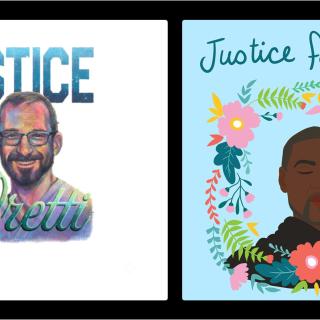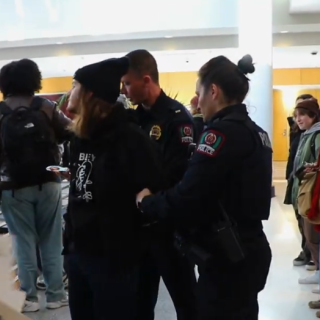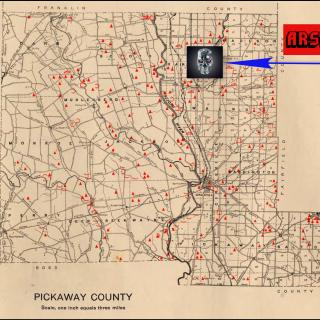In 2017, the year that Donald Trump was inaugurated, there was a 17% increase in hate crimes within the United States from the previous year. Due to the prejudiced rhetoric spoken by the new leader of the free world during his campaign, some accused him publicly of being responsible for the rise in these kinds of crime. President Trump has not had much to say on the matter.
However, the number of hate crimes within the demographics his campaign demonized (people from the Middle Eastern and Latin America, Muslims, and LGBTQ+ people) were particularly notable. As reported by Roll Call:
Most of the 7,175 cases in 2017 involved race-based bias, though there were at least 1,564 cases that involved bias against certain religions. People were targeted for their sexual orientation in 1,130 cases.
Obviously, these numbers are cause for concern. Due to their nature, it was recently announced that there will be an investigation by the House Judiciary Committee on such correlations. But is it credible to say that Trump’s rhetoric has incited people to be hateful and violent? And if so, what can be done about it?
What Do the Facts Say?Since President Trump’s rise to political power, there have been a lot of publications concerning his election’s effects on American society as a whole. For instance, Op-Ed pieces have been penned ad nauseum about how he has reinforced negative stigmas surrounding Muslims. But there have also been studies that observe the effects of his words and policies.
Three political science graduate students conducted a study that revealed a 226% increase in reported hate crimes in counties Trump had held campaign rallies in. For the skeptics, the researchers had this to say:
Of course, our analysis cannot be certain it was Trump’s campaign rally rhetoric that caused people to commit more hate crimes in the host county. However, suggestions that this effect can be explained through a plethora of faux hate crimes are at best unrealistic. In fact, this charge is frequently used as a political tool to dismiss concerns about hate crimes.
Now, this research is supported by the fact that crime is not rising everywhere, despite making headlines. In fact, violent crime has been in decline in every state since 2000, as you can see via interactive maps. While there was an increase in certain crimes, each issue has to be examined independently to determine whether or not it’s a hate crime or correlated with the president’s words and policies.
But as discovered in the research referenced above, locality is an important factor. Where Trump had been active on his campaign, violent crime rose significantly. To say it’s just coincidence and the kinds of people the president accepts support from (such as white nationalists) are insignificant is to ignore the nature of these hate crimes.
How Politicians Can Fight ViolenceThere is such a tug of war over power and bipartisan issues in the United States right now that it is hard for politicians to really make a substantial difference on federal policy. A fairly morbid example right now is how schools are left to fend for themselves when gun violence occurs within their walls. Even when Democrats stage sit-ins in opposition to lenient gun policies, these pushes have been voted into obscurity, close to a stalemate (note: some school shootings have qualified as hate crimes).
Since the Trump administration has done next to nothing in order to actually push for change in regards to these hate crimes, the state level may be the next great grounds for battle. For instance, LGBTQ+ protections are often left out of state law. It may be time for politicians to push legislation in their respective areas.
Another example comes with murderous crime. To do so, Massachusetts banned the bump stock. On the other end of the spectrum, activists in Idaho are similarly pushing for lawmakers to “add the words” — a campaign that pushes for discrimination policies to allow LGBTQ+ into the fold so discriminatory loopholes will not be taken advantage of. Ultimately, this may be the most effective form of action lawmakers can take, though they should support those with marginalized voices using their platform as well.
How the American People Make a DifferenceAmericans must fight a culture of hate carefully. Post-crisis action requires wisdom, and while it must be timely it must also be smart. Here are three ways that hate crimes can be reasonably and legally fought by the American people.
- Spreading awareness:In your casual conversations, your social media interactions, and the protests you attend, you may be able to let the world know about this culture of hate and just how relevant it is today. If you’re not a person in the margins, you can use these platforms to lift up those who are.
- Accountability:When those around you are saying problematic things, you have the responsibility to call them out on it. If you see a hate crime occurring, try to document it with video or call the authorities.
- Political Action:Citizens can call their lawmakers when voting on important bills that would affect hate crimes. Lawmakers are nervous when public opinion goes against them, especially in a direct manner. Make your voice heard.
Stay on your toes and do what you can. The facts say that in places where Trump is popular, you may see more hate speech, which can unfortunately be escalated. Politicians can only do what they can on a legislative level, and it may be good for them to handle things on a state basis before taking it to a federal level. As a citizen, you may have more room for your voice to be heard.



